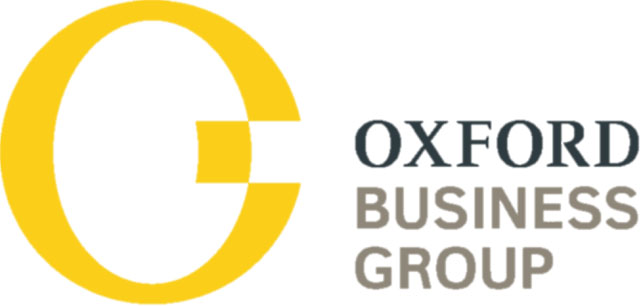AMMAN — Much discussion of Jordan’s economic potential focuses on the mining and processing of minerals, but knowledge sectors like pharmaceuticals may offer a more effective tonic for the economy.
The latest data released by the Department of Statistics show that pharmaceuticals exports in the first half totalled JD218.5 million ($308.4 million), up 6.6 per cent from the same period last year.
By comparison, the value of traditional export commodities such as crude potassium (or potash) and phosphates fell by 20 per cent year-on-year to JD223.6 million ($315.6 million) and 3.8 per cent to JD155 million ($218.8 million), respectively.
Energy effects
The raw numbers, however, tell only part of the story. While the extractive industries and related spin-offs provide significant revenues, producers are doubly exposed — as buyers and as sellers — to shifts in global commodity markets.
For example, Amman-based Arab Potash Company (APC) posted a fall in profit of more than 50 per cent in the first six months, which it attributed to both lower prices for its own products and higher ones for the energy it uses to produce them, the same factors it blamed for a 35 per cent drop in profit for 2013.
The increased fuel costs are exacerbated by Jordan’s near total reliance on energy imports, which have been interrupted repeatedly by regional unrest in recent years, forcing companies like APC to burn more expensive heavy fuel oil.
APC has agreed to buy gas from neighbouring Israel’s promising offshore fields but that flow is not scheduled to start until 2016.
By contrast, pharmaceuticals companies operate in the high-skill, high-tradability knowledge sector of the economy, which, while still relatively small in Jordan, continues to expand at a rapid rate.
Companies in this segment, which also includes information and communications technology (ICT), and air transport, tend to be export-oriented, hire well-educated employees and offer relatively strong wage, and benefit packages.
Employment driver
While extractive industries will always be partly hostage to energy supplies and costs, pharmaceuticals play to Jordan’s strengths.
The country’s workforce is among the most educated in the Middle East North Africa (MENA) region and it also ranks near the top of the region on the UN’s Human Development Index.
In addition, the pharmaceuticals business enjoys multiple synergies with another beneficiary of Jordan’s reserves of highly skilled human capital: Its relatively advanced healthcare system, including a medical tourism industry.
In recent years, the pharmaceuticals sector directly employed some 5,000 people in Jordan, with 3,000 more indirect jobs created in areas such as packaging, shipping and marketing.
“The pharmaceuticals industry is [Jordan’s] second-most-valuable export… after mining. The export market accounts for 80 per cent of all revenues… which shows just how strong the sector is in itself, and for Jordan,” Maher Kurdi, managing director of Hayat Pharmaceutical Industries, told Oxford Business Group (OBG).
Kurdi warns that the industry must not rest on its laurels, particularly in terms of training tomorrow’s workforce. “The education system in Jordan has been gradually slowing down… and I believe this will have ill effects on our long-term competitiveness, unless this is reversed,” he said.
Regional ambitions
According to the Jordan Association of Pharmaceuticals Producers, around four-fifths of production is for export, with around 90 per cent of foreign sales going to Arab countries, thanks to strong growth across the region.
London-listed Hikma Pharmaceuticals, which was founded in Jordan and has a US Food and Drug Administration-approved manufacturing facility in the country, pointed to strong growth in key markets such as Egypt and Saudi Arabia when reporting its first-half results in August, posting a 44 per cent jump in adjusted profit to $176 million and a 16 per cent rise in revenue to $738 million.
In its annual report, it indicated that pharmaceutical sales for the top nine private retail markets in the MENA region grew by 7 per cent in 2013, to reach $11 billionn, according to IMS Health.
The Gulf’s own pharmaceuticals sector is relatively underdeveloped due to several factors, including the lack of focus on the development of a manufacturing sector in the countries of the Gulf Cooperation Council (GCC) until a few years back, the difficulty of raising funds for an industry that is inherently capital-intensive and involves a long payback period, as well as a shortage of suitably trained personnel, according to a sector report by Alpen Capital.
Here, the early establishment of Jordan’s pharmaceuticals industry in the 1960s is paying dividends. The Kingdom, along with Egypt, has matured into an important regional centre from which major multinational companies export drugs into the Gulf.
It was the largest exporter of medicines in the Arab world in 2011, according to the World Trade Organisation data, as well as the second largest in MENA, behind Israel.
The GCC countries offer major markets in which drug prices are “significantly higher than the world average” and changing lifestyles are increasing the incidence of chronic health conditions such as diabetes, driving increased consumption of both prescription and over-the-counter medications, noted Alpen Capital.
This article is provided to The Jordan Times by Oxford Business Group team in Jordan.
